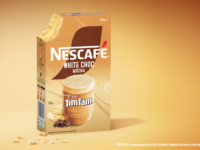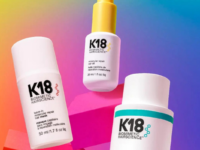As the shortage of sunflower oil ripples through the global food sector, retailers are moving to replace sunflower with alternatives like canola, grapeseed or soybean oil. At the same time, Australian farmers are being urged to consider planting sunflowers to relieve the shortage.
Ukraine and Russia account for an estimated half of the world’s supply of sunflower oil (25 per cent each), and Russia’s invasion of Ukraine has stalled exports of one of the world’s most-consumed edible oils. The crisis has pushed vegetable oil prices significantly higher and triggered trade policy responses worldwide that further restrict supply.
Vegetable oils such as sunflower vary in flavour and use in different products but are often substitutable. As a result, vegetable oil prices tend to move together. Furthermore, swapping out one oil for another can create hurdles for food manufacturers because of allergy issues, production bottlenecks, and labelling requirements.
Unilever, for example, announced it had altered some of its product recipes to replace sunflower oil with grapeseed oil, a move it said could help save money as input costs soar.
“One of the things Unilever’s good at is flexing our formulations so that we can take advantage of differential cost increases,” said Alan Jope, CEO of Unilever, on a call with journalists.
“As supplies of sunflower oil have got tight from Ukraine, we’ve been able to switch to other oils like grapeseed oil quite effectively.”
In Australia, food manufacturer Goodman Fielder said it would change the oil type used in its products, including Praise, Eta, and Oil & Vine. The company said it will now use a blend of sunflower and canola oil.
However, as Goodman Fielder slowly transitions to the new oil blend, it said there would be no change to the allergens listed on the pack. For a brief period, the ingredient list will continue to declare only sunflower oil until it can update all labels to reflect the oil change.
Consumer watchdog, Food Standards Agency (FSA), said food manufacturers could substitute ingredients without having to print new labels, but only as a temporary measure. Suppliers should print accurate labels as soon as possible.
“It is an absolute priority for us that food is safe and what it says it is,” says Emily Miles, CEO of FSA.
“If industry decisions are made around the substitutions of these oils, we expect accurate labels to be prepared and printed as soon as possible so that consumers can be confident in the food they buy. Any inaccuracies in labelling must only be temporary.”
Nick Goddard, executive director of the Australian Oilseed Federation, told Stockhead that the country could produce sunflower oil, but crops have fallen out in favour with cotton, sorghum, and canola more popular.
“There is growing interest from farmers to get back into growing sunflowers because the price is likely to remain firm for some time yet,” said Goddard.
“But we don’t have the supply chain to switch to sunflower seed and oil instantly, so there’s a bit of work that needs to be done downstream. The market is providing signals that could enable people to invest in infrastructure to handle the crop.”

















